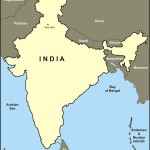“She is encouraging her ‘sons’ to go out and become martyrs and die in battle…”
In the morning, Tal Afar was strangely quiet except for the continuous buzzing of the unmanned Predators overhead. The Apaches were gone and the resistance was licking its wounds. It was reported that 50 mujahedeen had been killed and another 120 wounded. The worst news of all was that the Emir had been killed, the target of a Predator missile that had successfully destroyed his Land Rover. While his followers celebrated his martyrdom, the Emir’s death left a power vacuum among the mujahedeen.
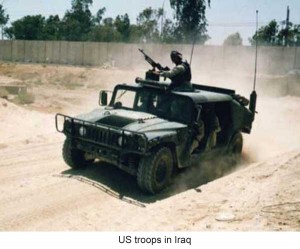 Around mid-morning, a group of gunmen arrived at the workshop to take us away. Zeynep pleaded with them in Turkish that we were to go free, but it was to no avail.“We received no such instruction,” said the man who now appeared to be in charge. “You are spies.”This time they were extremely rough in applying my blindfold. It was tied so tight I could sense losing blood circulation in my brain. They pushed and prodded me blindly towards a car and then deliberately bashed my head against the doorframe. “Jewish pig!” spat one of the guards.
Around mid-morning, a group of gunmen arrived at the workshop to take us away. Zeynep pleaded with them in Turkish that we were to go free, but it was to no avail.“We received no such instruction,” said the man who now appeared to be in charge. “You are spies.”This time they were extremely rough in applying my blindfold. It was tied so tight I could sense losing blood circulation in my brain. They pushed and prodded me blindly towards a car and then deliberately bashed my head against the doorframe. “Jewish pig!” spat one of the guards.
At the fourth house, which smelled like some sort of farm complex, I was once again rushed through doorways and then down into a cellar. In addition to the blindfold they placed a hood over my head and I felt I was suffocating in the heat and dust. I could feel the fear well up inside me as one of the gunmen forced me onto a mat and placed the barrel of a Kalashnikov against my neck. “Don’t speak, Don’t move.”
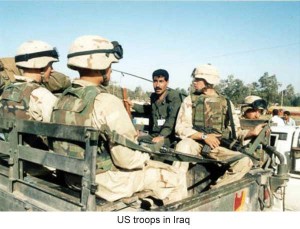 Another group of men entered the cellar and began questioning Zeynep as to our identity. She told them of the Emir’s promise, and advised them that our papers, ID and passports were all at the first house. Finally, we were allowed to remove the hoods while the mujahedeen went to check out our story. At this point I realized that there was another prisoner in the room with us. He was an Iraqi from Mosul, also accused of spying. He was not allowed to remove his hood.Throughout the rest of the morning, there was plenty of activity in the resistance bunker. About thirty or so fighters were busy transferring stockpiles of RPGs and explosives. In addition to the gruff male voices, we could hear an elderly woman shouting encouragement to the men. “They call her mother” whispered Zeynep. “She is encouraging her ‘sons’ to go out and become martyrs and die in battle. Can you believe it?”Our previous interrogator returned to our makeshift cell to advise us that our bags, cameras, and identity papers were now buried in a heap of rubble: The first house had been destroyed by a precision-guided bomb. With no proof of our nationality or profession, a heated debate among the fighters soon erupted outside in the corridor.
Another group of men entered the cellar and began questioning Zeynep as to our identity. She told them of the Emir’s promise, and advised them that our papers, ID and passports were all at the first house. Finally, we were allowed to remove the hoods while the mujahedeen went to check out our story. At this point I realized that there was another prisoner in the room with us. He was an Iraqi from Mosul, also accused of spying. He was not allowed to remove his hood.Throughout the rest of the morning, there was plenty of activity in the resistance bunker. About thirty or so fighters were busy transferring stockpiles of RPGs and explosives. In addition to the gruff male voices, we could hear an elderly woman shouting encouragement to the men. “They call her mother” whispered Zeynep. “She is encouraging her ‘sons’ to go out and become martyrs and die in battle. Can you believe it?”Our previous interrogator returned to our makeshift cell to advise us that our bags, cameras, and identity papers were now buried in a heap of rubble: The first house had been destroyed by a precision-guided bomb. With no proof of our nationality or profession, a heated debate among the fighters soon erupted outside in the corridor.
“Oh my god theyre going to shoot us!”
Listening to their conversation, Zeynep suddenly gasped: “Oh my god they’re going to shoot us!” I fought to suppress the panic that I felt. It was then the other prisoner spoke for the first time. In good English he said, “Are you sure?”
The door burst open and several men stepped inside. “Stand up,” one of them said to me. “You are the first to die, American pig”. My hands were still tied and I felt helpless as one of them approached me with another blindfold. I told them that I did not want a blindfold – not out of any bravado, but because I found that the sense of fear was magnified by the inability to see. I received a punch on the head for my protest and the blindfold was pulled snugly into place. This time they added a gag and a black hood.
“If my people hear someone speak English they will beat you to death before I can stop them, now move!”
Once again, I could feel the claustrophobia and fear beginning to panic me, and I struggled to maintain some composure. The cries of fear and alarm from Zeynep had caught the attention of the woman, who apparently had not realized that the men were detaining a female. She entered our cell and a heated discussion took place between her and the fighters. Several times I was struck during this conversation and I still believed I was about to die. Finally one of the mujahedeen came close to me and whispered, “I have a brother in Canada. I have just saved you my friend – at least for now.”
Instead of being shot, they had decided to take us with them. They had learned that the Americans were about to bomb their complex so they were going to leave Tal Afar until the air strikes were over. The hood and mask remained in place, and the man who said he’d saved me warned me not to make any noise. “If my people hear someone speak English they will beat you to death before I can stop them, now move!”
Once again I was roughly manhandled through the passageways and pushed into the backseat of a car. I was shaking uncontrollably as I realized that I was not going to die – at least not that moment.
“Why be sorry? We celebrate his entry into Heaven.”
Although the Americans had claimed they had ‘sealed off’ Tal Afar prior to launching their offensive, I soon learned it was nothing more than wishful thinking. We had left the bunker in a six car convoy and made our way northward into the open desert. It had taken some time before the mujahedeen in our car had relented and allowed us to remove our hoods and blindfolds. Our hands were still tied, but I had sweat so much in the 45 degree heat that the moisture had loosened the straps. I was able to free my hands easily, and in an effort to gain their trust, I had shown them that my bonds needed to be retied. The man next to me simply laughed and instructed me to “forget about it. After all where can you go in the desert?”
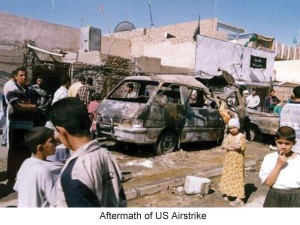 As we began chatting, this short grey-haired man with a close-cropped beard informed me that his brother was the now deceased Emir. “I’m sorry about his death,” I said, to which he replied, “Why be sorry? We celebrate his entry into Heaven.”What was reassuring to me was that, as the brother of the former leader, this man appeared to have filled the immediate leadership void in the group. I was especially relieved to learn that his brother had told him of the decision to set us free. We were also told that we had only to have our identities confirmed – via a Google search on the internet – and he would keep the promise of the martyred Emir. In the meantime, we would remain with the mujahedeen.Around 2 p.m. we had stopped near a remote desert house. The nearly 30 fighters had assembled around our car and began to conduct a mass prayer. Zeynep and I were instructed to remain in the car. It was as they were engrossed in their prayer that I spotted the two American helicopters coming out of the south, low and fast and headed straight towards our parked convoy. I cried out in alarm. At first the mujahedeen were angry at the interruption until they too spotted the approaching threat. Caught out in the open, they were sitting ducks. Nobody could move; they simply watched the helicopters steadily bear down on us.
As we began chatting, this short grey-haired man with a close-cropped beard informed me that his brother was the now deceased Emir. “I’m sorry about his death,” I said, to which he replied, “Why be sorry? We celebrate his entry into Heaven.”What was reassuring to me was that, as the brother of the former leader, this man appeared to have filled the immediate leadership void in the group. I was especially relieved to learn that his brother had told him of the decision to set us free. We were also told that we had only to have our identities confirmed – via a Google search on the internet – and he would keep the promise of the martyred Emir. In the meantime, we would remain with the mujahedeen.Around 2 p.m. we had stopped near a remote desert house. The nearly 30 fighters had assembled around our car and began to conduct a mass prayer. Zeynep and I were instructed to remain in the car. It was as they were engrossed in their prayer that I spotted the two American helicopters coming out of the south, low and fast and headed straight towards our parked convoy. I cried out in alarm. At first the mujahedeen were angry at the interruption until they too spotted the approaching threat. Caught out in the open, they were sitting ducks. Nobody could move; they simply watched the helicopters steadily bear down on us.
At about 800 metres distance, the gunships inexplicably banked away to the east without so much as a reconnaissance overpass of our mysterious group of vehicles in the middle of the desert. We had to have been in plain view, but the Americans turned away. “They always fly the same patrol routes” explained one of the fighters,“They see nothing.”
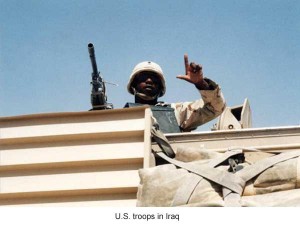 Shortly after the helicopters had departed two additional cars joined us and the mujahedeen began hastily transferring the huge stockpiles of explosives and rockets into them. “We are making them into suicide bombs,” said Mubashir, the Emir’s brother, of the cars being loaded and wired. “These men will head back into Tal Afar and use the vehicles to destroy the American armoured vehicles. A total of four mujahedeen climbed into the suicide cars and as they drove back into the battle, their comrades shouted a final encouragement.
Shortly after the helicopters had departed two additional cars joined us and the mujahedeen began hastily transferring the huge stockpiles of explosives and rockets into them. “We are making them into suicide bombs,” said Mubashir, the Emir’s brother, of the cars being loaded and wired. “These men will head back into Tal Afar and use the vehicles to destroy the American armoured vehicles. A total of four mujahedeen climbed into the suicide cars and as they drove back into the battle, their comrades shouted a final encouragement.
We proceeded on through the desert towards the northern outskirts of Mosul. Along the way we stopped at several farmhouses where the residents eagerly offered the fighters food and water. When we actually entered the Mosul checkpoint, the Iraqi police appeared to take no notice of the dusty column of cars packed with bearded men armed with Kalashnikovs and RPGs. A gauntlet of young boys lined the route to cheer our convoy and offer water and cigarettes. Instead of entering the city however, we headed further north to a deserted house that was still under construction. We were ordered inside the building, and it was at this point I realized that the other hostage, a driver for UNICEF, had spent the entire 3 hour desert transit in the trunk of one of the cars. He emerged from the vehicle, still blindfolded, covered in dust and sweat, and without his shoes. He was in terrible condition, but he made no sound of complaint as they hurried us into the empty house.
“The Turkish girl will live, you two will die, he said pointing at me…”
There was some confusion among the fighters at this point. They were eager to return to Tal Afar – not sit out the battle in a safe house. All but one of their cars soon departed, leaving only two armed guards with us. The possibility of escape certainly crossed my mind. It was the hottest part of the day and the sentries were exhausted. Although it was open ground, the Mosul highway was clearly, visible about 2 kilometres away. With all the passing traffic it would be possible to flag down a ride – if I could only survive the run.
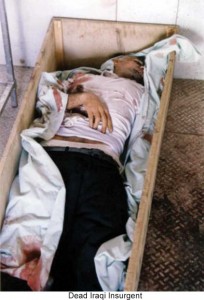 Before I could give much thought to such a plan, another car pulled up at our hideout. Four new mujahedeen strode into our building and immediately began berating the two guards for being lenient with us. The leader of this group was a short, stocky, little man who strutted about with his ski-mask on. He wasted no time in making his thoughts known. “The Turkish girl will live, you two will die. he said pointing at me and the UNICEF driver. “I will cut off your heads at dusk and you will be buried there,” pointing to a freshly dug grave-sized ditch about twenty metres from the house.
Before I could give much thought to such a plan, another car pulled up at our hideout. Four new mujahedeen strode into our building and immediately began berating the two guards for being lenient with us. The leader of this group was a short, stocky, little man who strutted about with his ski-mask on. He wasted no time in making his thoughts known. “The Turkish girl will live, you two will die. he said pointing at me and the UNICEF driver. “I will cut off your heads at dusk and you will be buried there,” pointing to a freshly dug grave-sized ditch about twenty metres from the house.
Zeynep was removed to another room and we were told to prepare ourselves to die. Although forbidden to talk whenever the guard was distracted, the driver and I took the opportunity to encourage each other and try to provide support. “At least we will not die alone,” he said.
As dusk approached we were offered a final meal of flatbread, roast chicken and tomatoes. The maniacal little leader came to watch us eat, all the while aiming his gun at us. “Eat, eat” Why do you have no appetite, are you afraid American pig?” he said and then laughed at his own joke. Although I was certainly not hungry, I did my best to choke down a few difficult mouthfuls. Inside, I had to stifle a trembling fear from overcoming my composure. My fellow prisoner began to sob, and I reached over to take his hand.
“How long do you think the pain will last?” he asked. It was something which I had been giving careful consideration and I replied, “About three seconds”. As the sun started to set on the horizon, Mubashir drove up and entered into a heated argument with the newcomer. Reassured at the sound of his voice, I had risked a glance out of the window just in time to see the ceremonial dagger being returned to the trunk of the car. We had been spared once again.




